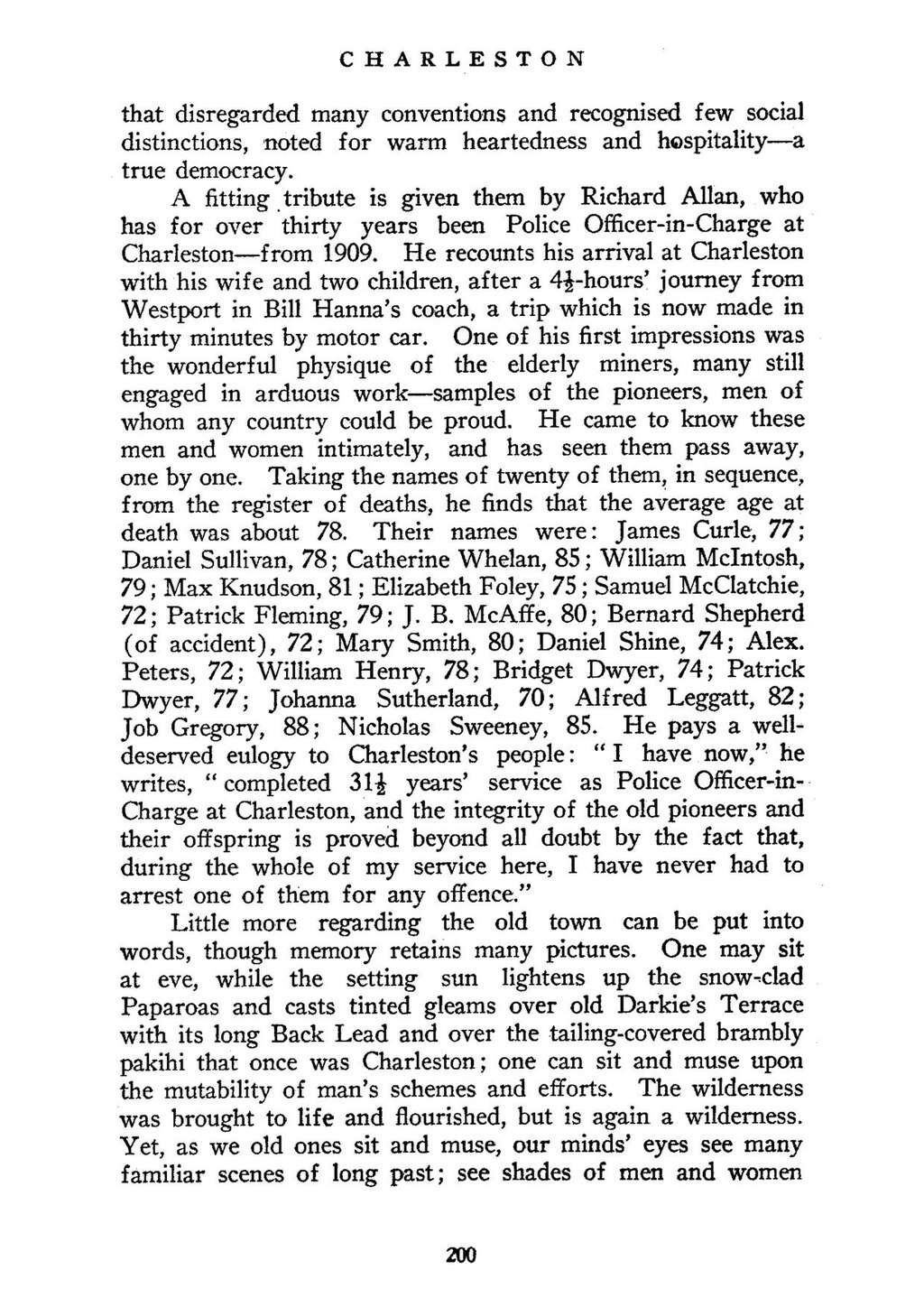CHARLESTON
that disregarded many conventions and recognised few social distinctions, noted for warm heartedness and hospitality—a true democracy.
A fitting tribute is given them by Richard Allan, who has for over thirty years been Police Officer-in-Charge at Charleston—from 1909. He recounts his arrival at Charleston with his wife and two children, after a 4½-hours’ journey from Westport in Bill Hanna’s coach, a trip which is now made in thirty minutes by motor car. One of his first impressions was the wonderful physique of the elderly miners, many still engaged in arduous work—samples of the pioneers, men of whom any country could be proud. He came to know these men and women intimately, and has seen them pass away, one by one. Taking the names of twenty of them, in sequence, from the register of deaths, he finds that the average age at death was about 78. Their names were: James Curle, 77; Daniel Sullivan, 78; Catherine Whelan, 85; William McIntosh, 79; Max Knudson, 81; Elizabeth Foley, 75; Samuel McClatchie, 72; Patrick Fleming, 79; J. B. McAffe, 80; Bernard Shepherd (of accident), 72; Mary Smith, 80; Daniel Shine, 74; Alex. Peters, 72; William Henry, 78; Bridget Dwyer, 74; Patrick Dwyer, 77; Johanna Sutherland, 70; Alfred Leggatt, 82; Job Gregory, 88; Nicholas Sweeney, 85. He pays a well-deserved eulogy to Charleston’s people: “I have now,” he writes, “completed 31½ years’ service as Police Officer-inCharge at Charleston, and the integrity of the old pioneers and their offspring is proved beyond all doubt by the fact that, during the whole of my service here, I have never had to arrest one of them for any offence.”
Little more regarding the old town can be put into words, though memory retains many pictures. One may sit at eve, while the setting sun lightens up the snow-clad Paparoas and casts tinted gleams over old Darkie’s Terrace with its long Back Lead and over the tailing-covered brambly pakihi that once was Charleston; one can sit and muse upon the mutability of man’s schemes and efforts. The wilderness was brought to life and flourished, but is again a wilderness. Yet, as we old ones sit and muse, our minds’ eyes see many familiar scenes of long past; see shades of men and women
200
